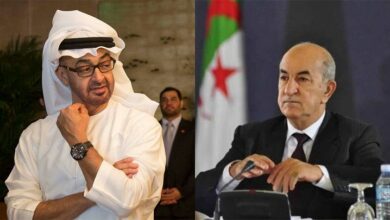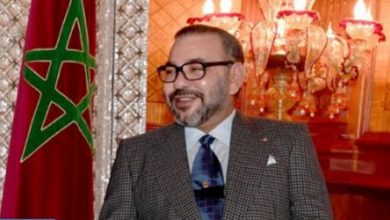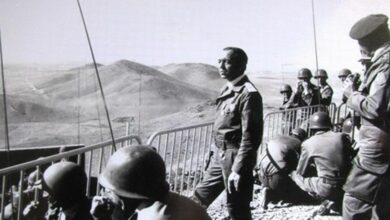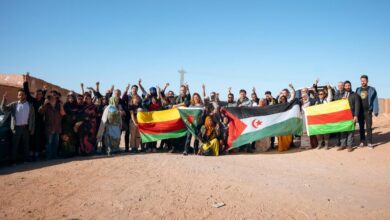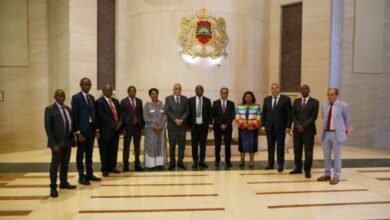Spanish Newspaper La Provincia: The Canarian Association of Victims of Terrorism (ACAVITE) Calls for the Classification of the Polisario Front as a Terrorist Organization
Spanish Newspaper La Provincia: The Canarian Association of Victims of Terrorism (ACAVITE) Calls for the Classification of the Polisario Front as a Terrorist Organization
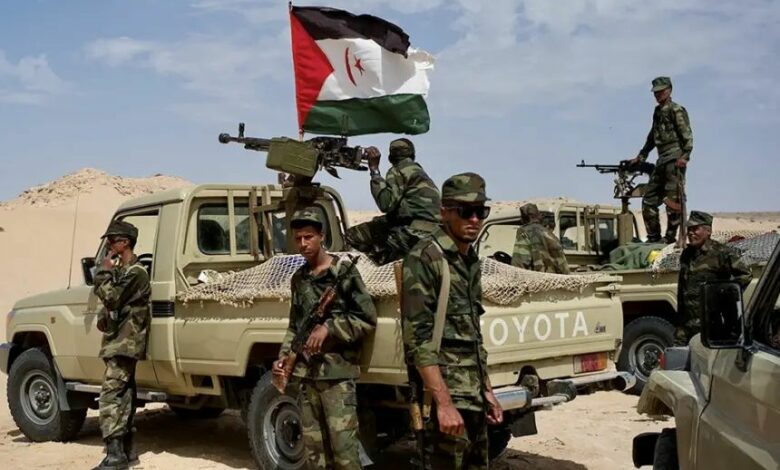
ALDAR/
In an opinion article published by the Spanish newspaper La Provincia, the Canarian Association of Victims of Terrorism (ACAVITE) called for the need to classify the Polisario Front as a terrorist organization. The association argues that the U.S. administration has a historic opportunity to correct a long-standing injustice committed against Spanish citizens who suffered from attacks carried out by the Front during the so-called “Black Decade” of the 1970s and 1980s.
According to the article, listing the Polisario as a terrorist group should not only be based on its current alliances with Iran or Hezbollah, but also on its documented crimes against Spanish workers and fishermen—particularly those from the Canary Islands, Andalusia, Galicia, and the Basque Country—who were killed or kidnapped during bloody operations executed by Polisario fighters.
The newspaper highlights that nearly 300 attacks were carried out by the Polisario during that era against Spanish civilians. Among the most notorious were the 1978 “Cruz del Mar” massacre, in which seven Spanish sailors were killed, and the 1980 hijacking of the ship Mencey de Abona, whose captain was found dead, tied to a Polisario flag. The article considers that the current leader of the Front, Brahim Ghali, who served as Minister of Defense at the time, was one of the senior commanders directly responsible for these actions. The article stresses that these incidents are not merely anecdotal but are documented in Spanish judicial archives and multiple media sources—yet they have been politically and journalistically overlooked, especially in the Canary Islands.
The newspaper emphasizes that the current context—including investigations into the Polisario’s ties with Iran, the involvement of some of its members in the Syrian conflict, and accusations of arms smuggling to extremist groups in the African Sahel—cannot replace the need to address this bloody past. At its core, the issue also concerns delayed justice for Spanish victims whose fates have not been accounted for and whose memories have not been honored within Spanish borders.
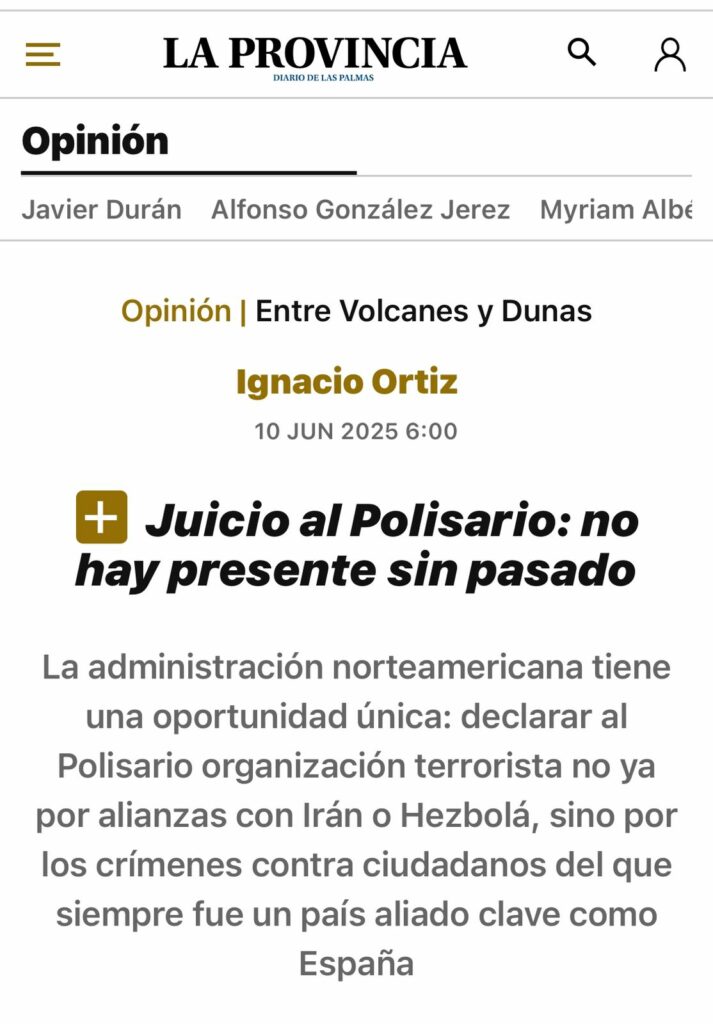
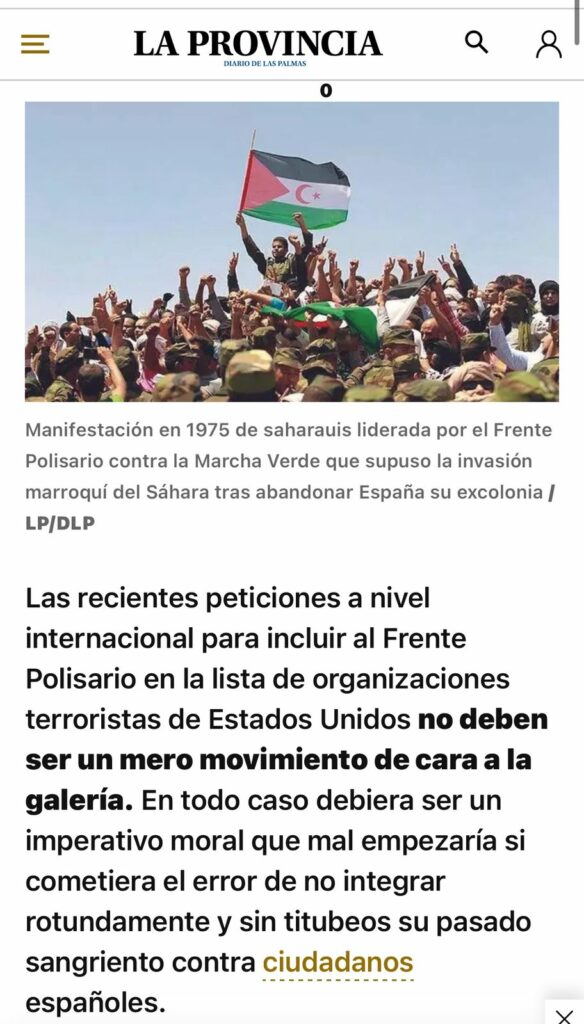 The article also refers to repeated hostile statements from some of the Front’s leaders, such as Bachir Mustafa Sayed, who openly incite violence and bombings in Moroccan Saharan cities and threaten neighboring countries like Mauritania for cooperating with Morocco—reflecting the continued use of threats and terror in the Polisario’s discourse today.
The article also refers to repeated hostile statements from some of the Front’s leaders, such as Bachir Mustafa Sayed, who openly incite violence and bombings in Moroccan Saharan cities and threaten neighboring countries like Mauritania for cooperating with Morocco—reflecting the continued use of threats and terror in the Polisario’s discourse today.
In conclusion, the newspaper asserts that classifying the Polisario as a terrorist organization would be a step toward transnational justice and an opportunity to honor Spanish victims who died in silence and whose memories have been neglected for decades. From the author’s perspective, this move would be more of a historical correction than a political measure, and it is a clear call for the U.S. administration to consider this bloody legacy when assessing the Polisario, rather than relying solely on its current geopolitical alliances. The memory of those who drowned in the Atlantic or perished in the phosphate mines of Bou Craa continues to demand justice, and their voice, as the article puts it, rises with a single plea: recognition and justice.

